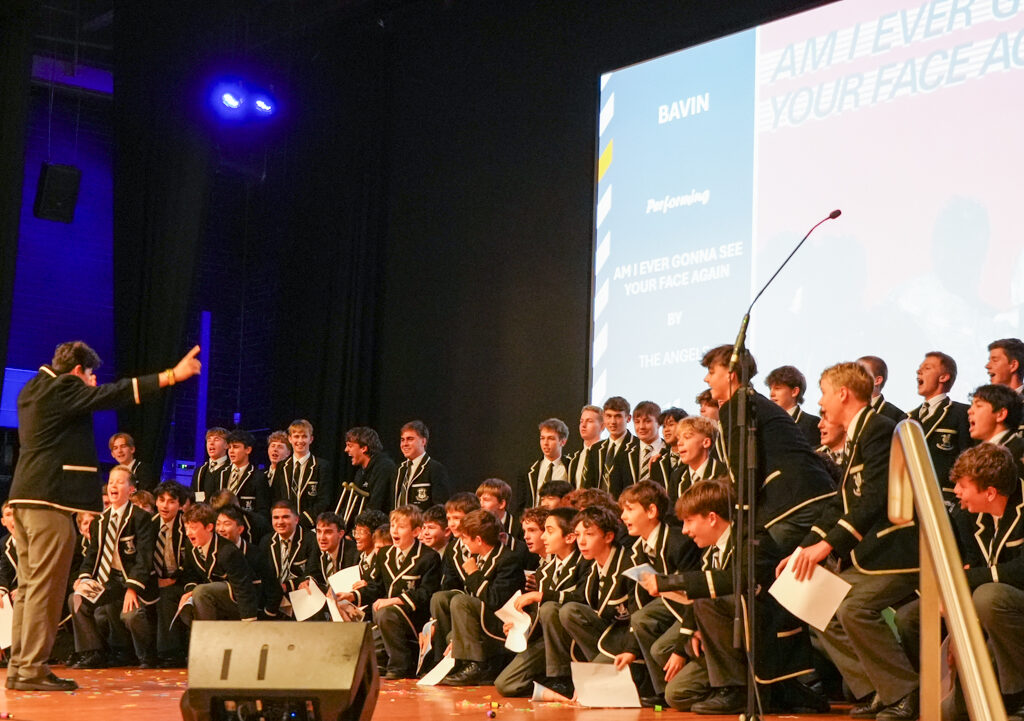Anxious Generation Part Three: What to do about portable devices
I have written this week about the impact social media is having on young people, and the data presented in Jonathan Haidt’s book The Anxious Generation that shows its impact on their mental health. Today, I’d like to look at what we can do to help young people negotiate the pervasive influence of platforms like TikTok and Instagram – and much of it starts with their phones.
Restricting the use of mobiles is one of the most difficult things parents and schools will ever try to do. But it is worth reasserting why it is important.
On one hand, portable devices come with many features that have made our lives better, easier and more seamless, from texting to Google maps, from flight check-ins to Spotify. Indeed, the pre-device era seems like a distant age shrouded in sepia tones or black and white. For our kids, a life without phones probably sounds a lot like a life with sticks, clubs and pelted clothing. This might be part of why it can be so hard to restrict or reduce our kids’ take-up of phones.
But we know that the social apps on these phones are designed to be addictive. We know that features like eternal scrolling, likes and the algorithmic steering of young people towards more extreme content are deliberate and destructive. We do not let our young people smoke or gamble or drive a car, yet we have, as an entire society, normalised our kids being allowed, without guardrails, to roam in the online world. We can wind it back, or (if your child is young enough) restrict things in the first place. As a parent of post-school children myself, I give myself a solid 6 out of 10 for delaying and restricting phones at home over the last decade. I wish I had read Jonathan Haidt’s book The Anxious Generation earlier and been an 8 or 9 out of 10 instead.
Below are the sorts of things that we as a school, and Haidt recommend you either do, or at least consider. If you want to see the way Haidt says it, please go to p277-287 of his book.
- Firstly, talk to your kids about the issues of phones. They may gaslight you, let you know that you are a sad washed-up relic of the 20th century and describe in gothic detail how you are going to ruin their lives. This is par for the course. You are still wiser than them. They have developing child or teenage brains.
- If you are very lucky, you will get your kids to a sufficient awareness of the issue that they make up their own rules or volunteer to restrict their phone. Then you just have the Sisyphean job of enforcing it.
- Haidt says there should be no more than two hours a day of screen-based recreation for six- to twelve-year-olds (including educational). However, he also says appropriate games use in moderation is okay.
- Let them use the phone for a predetermined amount of time each day, rather than letting them use the phone to fill in all the gaps in a day. If you think of the different activities of the day as bricks, make the phone one of the bricks. Don’t let it become the mortar that surrounds every brick (or permeates every other brick).
- Try to have agreed times where phones are not welcome around the house. Mealtimes, for one. Family movie or game nights, if you have them, are another. Haidt also suggests having a device-free day each week and a device free week every year (good luck with that one).
- Use control filters, even if some kids break through them. You can use ones that blacklist certain sites or blacklist certain times. They can be a bit clunky but, particularly when the kids are younger, they are less bad than the alternative.
- Haidt suggests smartphones at the age of 12 but not before, and social media apps at 16 but not before. We suspect that last one might be just too hard. If you have implemented this successfully, let us know how – you will have our undivided attention.
- Find other things for your young people to do. Without overscheduling them, consider another activity or a part-time job. Whatever happens, they should have ample time for homework and study.
- Don’t let the phone into the bedroom before bedtime (or, if possible, at all). This might involve getting an old-fashioned clock radio. Don’t let them use their phone half an hour before bed.
Hopefully the articles earlier this week about the significance of this challenge, and the practical suggestions above, give you some fortitude and armor to take on or continue to fight this fight.
All the best of luck,
Michael Parker
Headmaster



